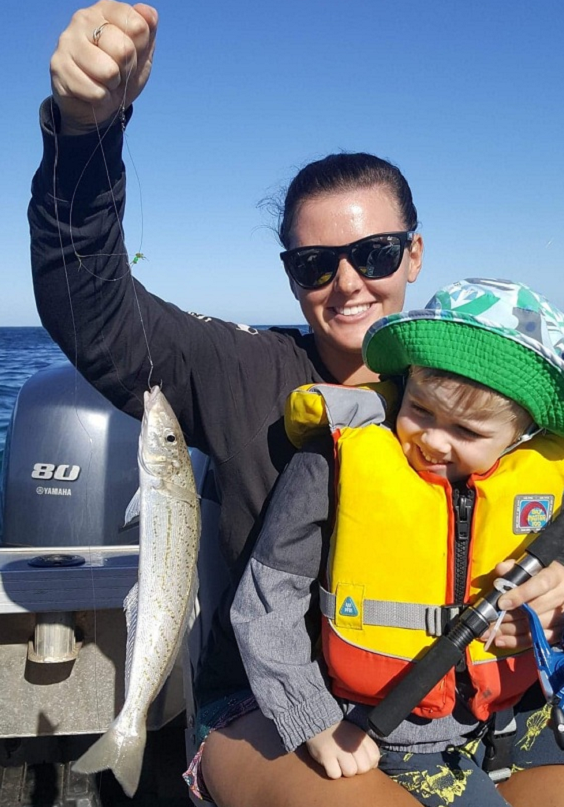
Recfishwest is fully committed to promoting safe fishing and providing safe fishing education.
Where there’s evidence and statistics to support the wearing of lifejackets in high risk situations such as boat fishing at night or by yourself, we would consider supporting making it mandatory to wear them.
However, we have always maintained safety largely comes down to the individual and the skipper of a vessel.
Read our position statement on mandatory lifejackets for recreational vessels in WA in full here.
The Department of Transport (DoT) is currently seeking feedback on 12 proposed changes to recreational boat safety equipment including lifejackets, distress signals (EPIRBs, PLBs and flares), radios, GPSs, fire extinguishers and other miscellaneous equipment (lighting, bilge pumps and anchors).
Recfishwest believe personal responsibility is the most important factor in improved safety outcomes, however, we are keen to hear your thoughts on these proposed changes.
The safety review was long overdue and Recfishwest welcome attempts to simplify the safety equipment required for recreational vessels. Whether you fish from a kayak, a tinny or a more substantial boat we encourage you to take a look at the recommendations and have your say by completing the DoT safety survey before 22 November 2019.
The Department of Transport will also be hosting information sessions to explain these proposals at the following locations:
- Bunbury – Tuesday 22 October, 2019
- Mandurah – Saturday 26 October, 2019
- Rockingham – Sunday 27 October, 2019
- Broome – Tuesday 29 October, 2019
- Albany – Thursday 31 October, 2019
- Hillarys – Sunday 3 November, 2019
- Karratha – Wednesday 6 November, 2019
- Geraldton – Wednesday 6 November, 2019
- Fremantle – Thursday 7 November, 2019
To register to attend people can email safetyequipmentreview@transport.wa.gov.au or contact DoT on 9435 7901.
The 12 proposed changes to recreational vessel safety include;
| Proposals from the Recreational Vessel Safety Equipment Review | |
| Proposal 1 | Vessel length will not restrict the distance a vessel can operate from shore. |
| Proposal 2 | There will be no mandated safety equipment for any vessel in protected waters or within 400 metres of any shore in unprotected waters |
| Proposal 3 | It will be mandatory to carry an appropriately sized lifejacket with a minimum buoyancy of Level 100 (Type 1) for each person on board any vessel when operating more than 400 metres offshore in unprotected waters |
| Proposal 4 | When lifejacket carriage is mandated (Proposal 3), the wearing of a level 100 or higher lifejacket will be required for each person on board: – a vessel less than 4.8 metres; – if they are more than one year old and under the age of 12 years on any size vessel |
| Proposal 5 | It will be mandatory to carry a Global Positioning System (GPS) enabled emergency position indicating radio beacon (EPIRB) on any vessel when operating more than 400 metres from shore in unprotected waters. |
| Proposal 6 | A GPS enabled personal locating beacon (PLB) may be carried in lieu of an EPIRB provided the PLB is worn by at least one person onboard at all times |
| Proposal 7 | It will be mandatory to carry two in date hand-held orange smoke flares and two in date red hand-held flares on any vessel when operating more than 400 metres from shore in unprotected waters. |
| Proposal 8 | An approved electronic night signalling device may be carried in lieu of flares if a GPS enabled EPIRB or PLB is also carried. |
| Proposal 9 | It will be mandatory to carry either a HF or VHF marine radio on any vessel when operating more than 4 nautical miles from shore in unprotected waters (27 MHz marine radios to be phased out over a 5-year period). |
| Proposal 10 | It will not be mandatory to carry a fire extinguisher on any vessel |
| Proposal 11 | It will not be mandatory to carry or have fitted a means of removing unwanted water from any vessel. |
| Proposal 12 | It will not be mandatory to carry an anchor or line on any vessel. |
